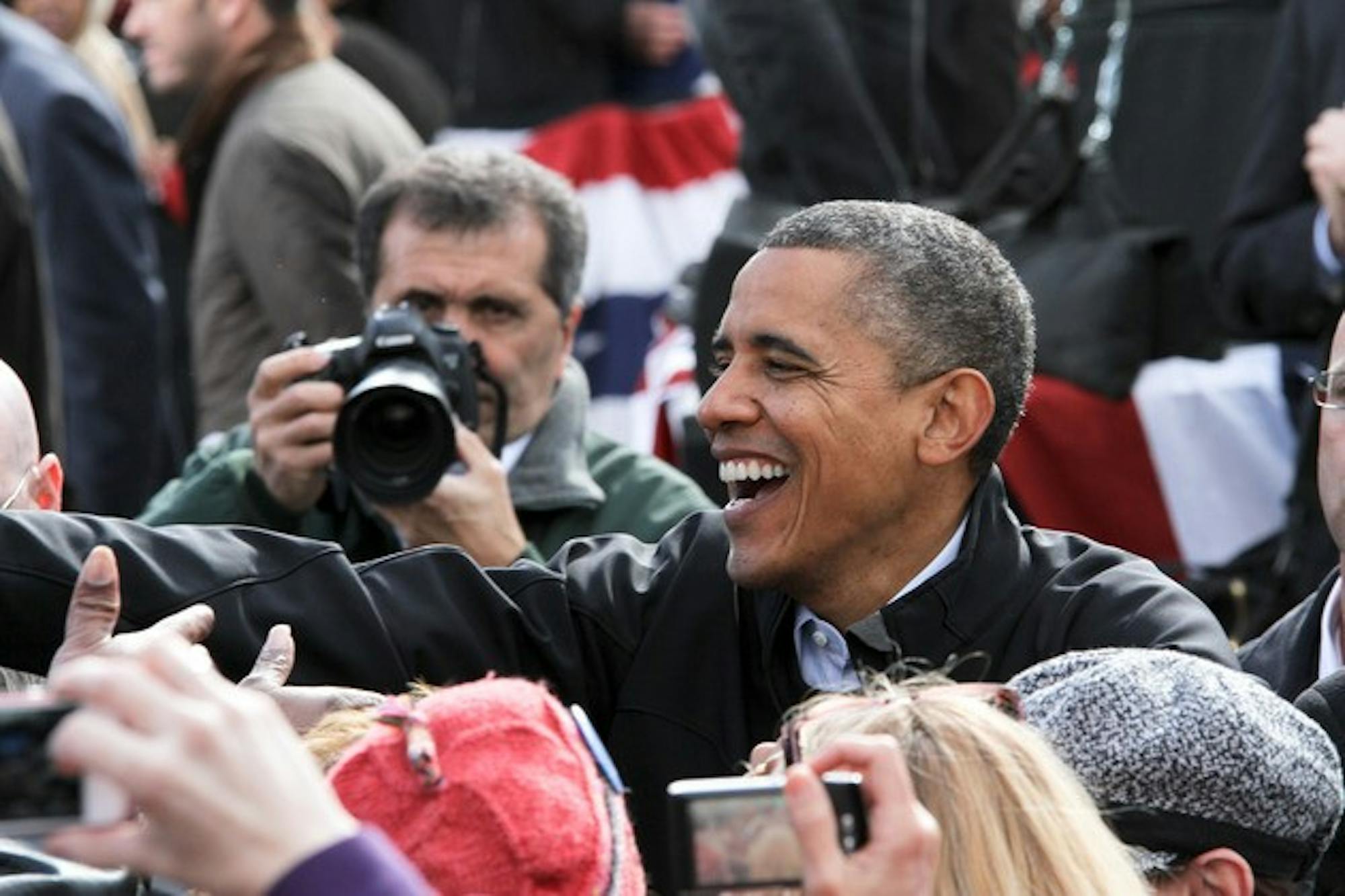Obama won New Hampshire's four electoral votes, marking the state's fifth time supporting a Democratic candidate in the last six elections. Obama won 52.2 percent of the popular vote in the state, with the support of 61.2 percent of Grafton County voters, as of press time.
Much of Obama's popularity among students stems from his focus on social issues, according to Sarah Sperry '16.
"I'm excited to see him implement the policies he's been pushing for over the next four years," she said.
While student voters were engaged and well-informed about the election, the general electorate is often not as knowledgeable, College Republicans Co-Vice President Robert Smith '14 said.
"I think in a place like Dartmouth, we are lucky that most voters are informed even about some of the more complex issues," he said.
Romney took the stage at 12:55 a.m. on Wednesday morning to deliver his concession speech, emphasizing the country's need to remain committed to bipartisanship and improvement. Both Democrats and Republicans should aim to "put the people before the politics," he said.
"This is a time of great challenges for America, and I pray that the president will be successful in guiding our nation," Romney said.
After a close race, Obama won New Hampshire, Colorado, Iowa, Nevada, Ohio, Virginia and Wisconsin, all battleground states. Romney claimed the electoral votes of North Carolina, also a battleground state. Both candidates campaigned heavily in New Hampshire through Monday.
Obama's victory places him among just three other sitting presidents who have won a second term by a margin of less than five points.
Such a narrow margin demonstrates discord within the country, Smith said.
"I think that this really clearly indicates that there is no clear mandate by the people for the next four years," he said. "We're definitely seeing an increasingly divided country."
These divisions, particularly within swing states, heightened tensions leading up to Election Day, according to Sperry. She said she observed that very few students fully endorsed either candidate, a stark contrast to the fervor surrounding the 2008 presidential election.
Samantha Victor '14, who voted in New Hampshire, said she was surprised that the election was so close but was glad that Obama won.
"I think we're finally going to see things actually get done," she said. "I do believe that four years is enough time to get some of the things done but definitely not everything, and we haven't seen a lot of progress. I'm glad he has another four years to keep going."
In New Hampshire, Democrat Ann Kuster '78 was elected to the House of Representatives for the 2nd congressional district. Kuster defeated incumbent Rep. Charlie Bass '74, R-N.H., who narrowly defeated Kuster in 2010. She received 50.5 percent of the popular vote in the district with 83 percent of precincts reporting by press time.
New Hampshire's 1st district also elected a Democrat to the House. Carol Shea-Porter won the seat with 49.3 percent of the popular vote over incumbent Frank Giunta, R-N.H., with 80 percent of precincts reporting by press time. The elections of Kuster and Shea-Porter made possible the nation's first all-female congressional delegation from a single state, a milestone that builds upon the election of the nation's first majority female state senate in New Hampshire four years ago.
The Senate will remain predominantly Democrat, while the House of Representatives will sustain a Republican majority.
Democrat Maggie Hassan won the gubernatorial race over Republican candidate Ovide Lamontagne, securing 54.6 percent of the vote at press time, with 81 percent of precincts reporting.
Hassan is the second consecutive Democrat to serve as the state's governor after Gov. John Lynch, who announced his retirement after serving four consecutive terms. Hassan, who served in New Hampshire's state senate from 2004 to 2010, was elected the president pro tempore and majority leader for the Democratic Party before losing in her reelection bid in 2010.
Unlike other Democratic candidates in the primary, Hassan took a pledge to veto sales and personal incomes taxes, neither of which New Hampshire has historically imposed. She also played a key role in the legalization of same-sex marriage in New Hampshire in 2009.




